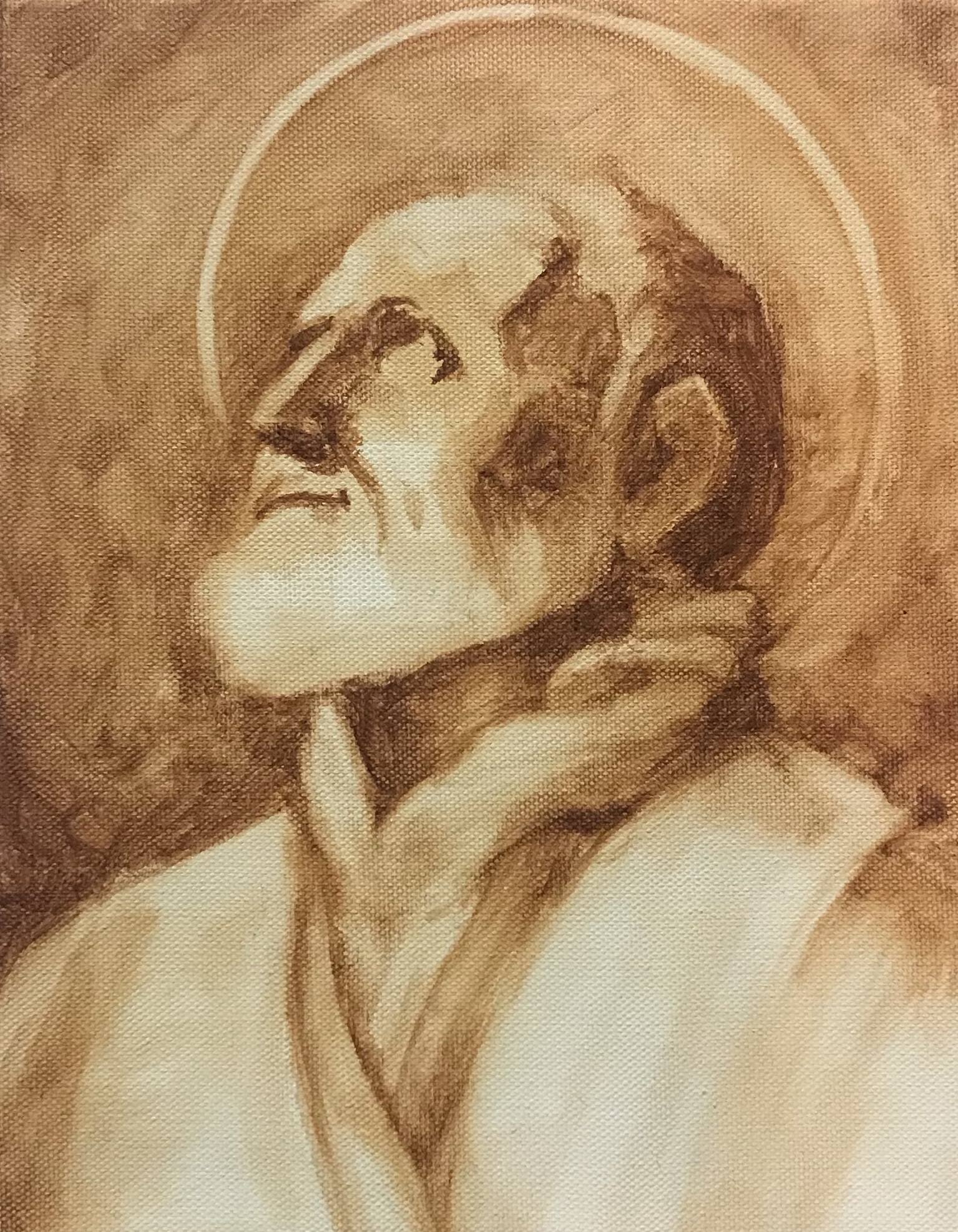The Lord’s command, “Do not weep,” certainly seems frustrating – as though there were a more obvious appropriate response. In the past healings we’ve seen in Luke’s Gospel, some kind of request was made – Jesus was asked to heal. In today’s Gospel, we see that the tears of a mother weeping over the death of her only son is stronger and more pertinent than the various forms of intercession. Jesus does not wait for her to ask something of Him: her tears and her devastation are enough to move Him. God does not remain unmoved by our suffering or grief until we make some kind of effort to pray. The Word became flesh so that flesh itself might become instrumental in our healing and our relationship with God. The young man is brought back to life in the flesh at the mere touch of Jesus. That contact, that physical gesture, brought the full power of the Word of Life to bear on the flesh of the dead.
Visitation of the Blessed Virgin Mary

The hidden figures of the Visitation reveal a great mystery. Jesus and St. John the Baptist are both powerfully present and active well before they are even born. For St. John the Baptist this is a great grace – it was by no human quality or disposition that he came to know and rejoice at the voice of the mother of his Savior. The divine gift of prophesy and the motion of the Holy Spirit are the only possible explain for John’s in utero dance of jubilation. The most important events in our own personal history of salvation are similar: as glad and as free as we were to come to know our savior in a more meaningful way, it was always, “a total God move.” Even the gift of prophesy which helps us to see the way God is moving in the world in a mysteriously clear way is still God moving first our mind. We can cleverly attribute the text of the Psalm 138 as Jesus speaking to John the Baptist,
Saint Philip Neri, Priest

St. Philip certainly had a rare gift. He was filled with the love of God to such a great extent that he became irresistible to all those whom he met. He had a great desire to love people for who they are because he experienced the love of God in an extraordinary way. He gives us the consoling example that our religion is not first about a form or practice of piety but rather about a heart that burns to love and meet people as they are, and burns to love God as He is. Sometimes we hear ourselves saying, “if only this person was <blank>” or “if God is so good why doesn’t He <blank>.” We extinguish the fire of love in our hearts by requiring God and others to conform to the way we would prefer them to be. The secret to Philip Neri’s heart was how it would burn through all expectations and requirements He could have put on others and on God.

